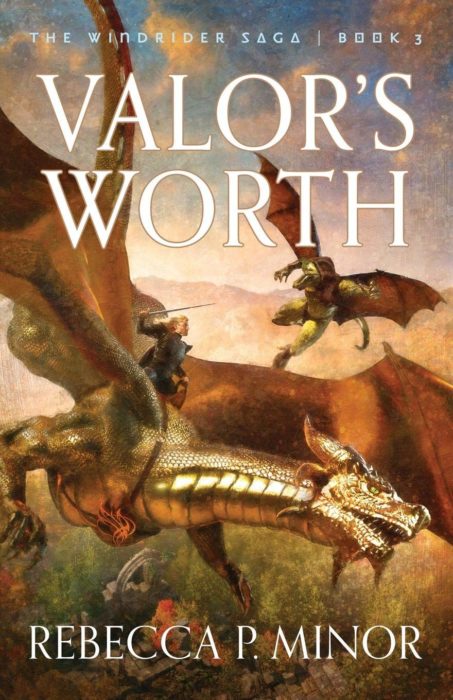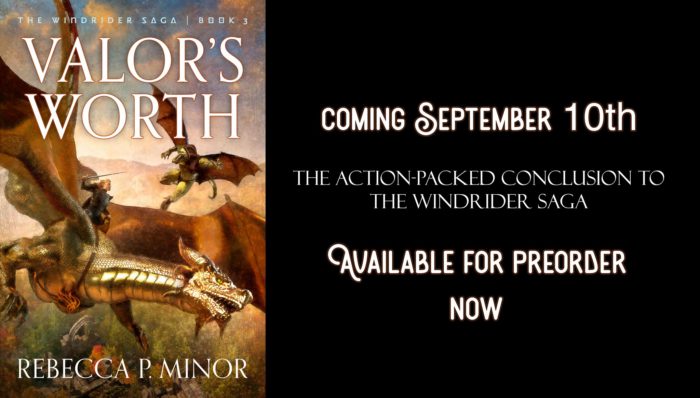Readers, Come As You Are, But Don’t Stay as You’ve Been
In the world of books, readers, and reviews, Christian authors live in fear of one simple word: preachy.
Now, I entirely agree that a book that pushes the forward momentum of the plot aside to sermonize on the author’s latest soapbox deserves to have a star or two knocked off a review, not for the author’s viewpoint, but for ham-fisted delivery.
But a great many authors, new to the game of navigating the minefield of public opinion, develop a new fear after hearing their writing comrades share the woes of one-star reviews and Twitter trolling. “Preach fear” broadens its infectious influence and drives some writers to ask, with trepidation, “Are themes no longer allowed in fiction?”
To me, this feels a lot like the subset of church culture that leans heavily upon the mantra “Come as you are” as they seek to draw in unchurched readers, with the motivation of wanting to express that personal perfection is not a requirement of attending a service.
Don’t get me wrong, I fully support the notion that having it all together is nothing more than an illusion and an excuse. Where “come as you are” sometimes goes wrong is when it putrefies into the non-confrontational practice of avoiding any mention that believers are to be transformed, to turn from habits that hurt their relationship with Christ.
A total avoidance of themes in fiction is like a church that never elaborates on “God loves you.”
So, as a writer, I’m pretty adamant that books (and churches) don’t have a duty to be non-confrontational. Stories can carry intense thematic elements without being preachy. Unfortunately, not every reader/reviewer knows the difference between encountering an idea that makes them uncomfortable and being hammered with an author soliloquy.
I’ve been exploring the notion of “Come as you are, but face your flaws and overcome them in Christ’s strength” in my fiction.
My Windrider Saga trilogy began as an experiment in writing an unlikeable protagonist, and I know that I’ve lost readers who struggle to put up with my main character’s deeply flawed personality. He’s ornery, impulsive, speaks his mind when he should hold his tongue, or just picks ungracious words to express himself. But it’s all a cover-up for his brokenness. The rejection he’s lived. The trauma of his childhood and his present-day. These are deep wounds, and just as we wouldn’t expect a long-time alcoholic to suddenly be sober and have every aspect of their life together the moment they hear the gospel, so it is with my Windrider.
As of September 10, I’ve reached the finale of a long cycle of re-releasing my four previously published books under my own self-publishing banner. It’s been an exciting time of recognizing some of my newbie writer mistakes (which I very much was when Divine Summons came out the first time) and having the opportunity to improve upon them. I “came as I was” in 2011. But here in 2019, I know my writing craft and my relationship with God had transformed. Now that the re-release process is over, I’m beginning to view my time being out of the published author game as a blessing—a needed time of growth and equipping.
 And so, as I build these improved editions of my backlist and forge onward to writing new novels, I walk a hazy line in the realm of themes. I must tread carefully between offering the theme of hope: “You’re not stuck. Small steps in the right direction are valid. And God can use you even if you’re a serious work-in-progress” and indulging my characters some easy preaching. It’s nervous work to weave inspiring character transformation into an engaging story, especially when an author can’t control whether readers who catch a whiff of a Judeo-Christian worldview in a book will sound the Preach Alarm.
And so, as I build these improved editions of my backlist and forge onward to writing new novels, I walk a hazy line in the realm of themes. I must tread carefully between offering the theme of hope: “You’re not stuck. Small steps in the right direction are valid. And God can use you even if you’re a serious work-in-progress” and indulging my characters some easy preaching. It’s nervous work to weave inspiring character transformation into an engaging story, especially when an author can’t control whether readers who catch a whiff of a Judeo-Christian worldview in a book will sound the Preach Alarm.
When it comes down to it, the work is worth it, though. Who wants to read (or write) a book that simply unpacks a series of events, that doesn’t endeavor to offer some points of reflection? As an artist, my ultimate goal centers on reflection, to offer stories in which readers see a reflection of some aspect of themselves, and ultimately, for my themes to reflect the character of the Creator, the one who has inspired me to make stories in the first place.








































Becky, thanks so much for this article. I’ve been noticing a great deal of current Christian speculative fiction tries hard to avoid preachiness, to the degree the story is gutted.
Our great predecessors did not hestitate to insert commentary and powerful themes, sometimes subtle and sometimes not, into their tales. And I don’t just mean Lewis and Tolkein. Just in science fiction, Edgar Rice Burroughs, H.G. Wells, Robert A. Heinlein, Arthur C. Clark, Jerry Pournelle, Marion Zimmer Bradley, Frank Herbert and many others did not shy away from strong themes (not that I agree with the themes of the bunch I named–mostly not in fact). Nor should we!
Congratulations on the re-release of your books by the way!
Thank you for your kind affirmation of my thoughts here, Travis. It’s very true that authors throughout history have brought their opinions, viewpoint, and even biases to their fiction. As Christian writers in the 21st century, we have a duty to make sure our side of the thematic spectrum remains part of the artistic conversation. Easier said than done, of course, depending on how you seek to publish a book.
As I’ve been prowling the wild world of fanfiction, I’ve found that you can preach all you want as long as you keep it within the language of that world. I’ve written whole sermons about divine justice, grace, and mercy, and my readers loved it. Because it fit with the world and with those characters. I’m currently writing one about the mystery of marriage, but it’s all couched in fantasy terms and wrapped around the story of the redemption of a cursed weapon. CS Lewis observed that nobody “got” the message in Out of the Silent Planet, and that believers can use these genres to sell the Gospel wholesale. It’s somewhat baffling to me that Christians can’t figure out how to do this. Heck, if I can do it, anyone can.
Totally agree about keeping it within the language of that world.
There’s a mystery to marriage? Unless it’s a euphemism for sex, the only ongoing questions in mine are when we text “do you need anything at the store” back and forth.
Many times, it’s not really about what people do, but how they do it. If something is expressed at the right time and in the right way, people might still enjoy reading about it even if they completely disagree with it.
Even if presentation makes all the difference, though, different people are still going to have different tolerance levels for stuff. If something is preachy or toxic, many people are more willing to accept it if they happen to agree with the stance the writer is taking. In spite of that, if they even THINK(based on conclusions they jump to) that the writer believes or behaves a certain way, they will get angry and/or call something preachy, even if the author was very subtle and wrote skillfully.
So, like, writers should always consider reviews for any info they can use to improve. They should also always be honing their craft and communication so that it’s effective and not preachy. But authors should remember that sometimes it really is just the readers. Or maybe the author did make a flaw in the book that should be fixed, but the readers might be completely overreacting to that flaw.
But, another thing about reactivity is how real a topic feels to someone. Like, an ardent atheist that avoids religious people in real life might be just fine and entertained by reading about a made up religious group in a story. They might even have respect for some aspect of those religious chars. But if they learn that the story is actually a metaphor for Christianity in some way, they might get very upset, because suddenly it has to do with real life and reminds them of real life issues they take with Christianity. And, suddenly, they feel like someone was trying to manipulate them simply because the story turned out to be something different than they expected.
I dislike propaganda even when it’s for “my side.” However, watching people live out their beliefs will never offend me, even if they spout propaganda. It’s when the author joins in with the manipulation of the scenes and language to tell me that I must believe like one of the characters that I take off.